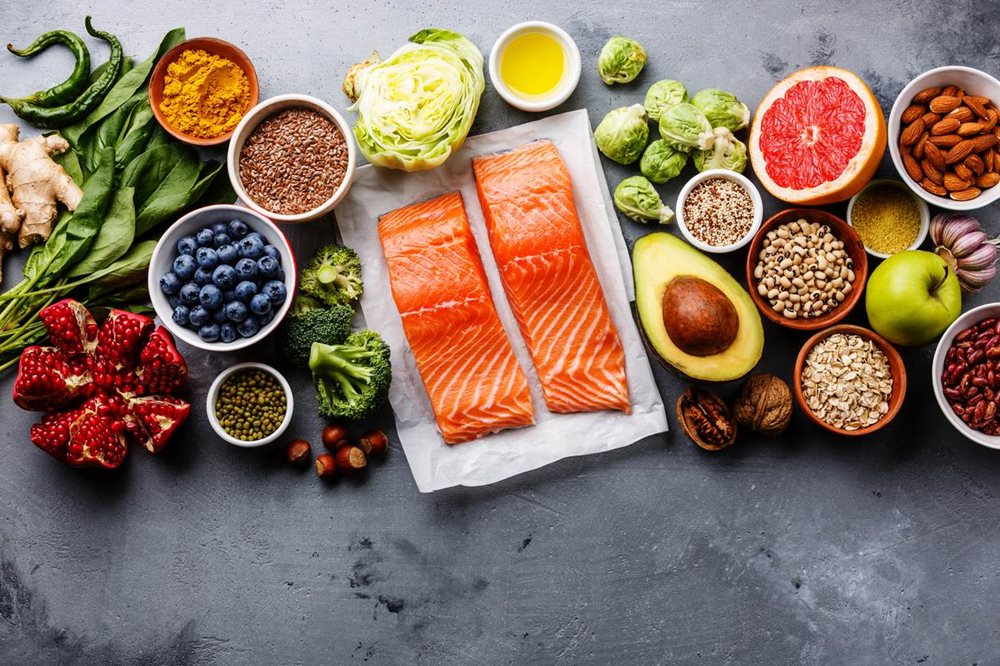5 Foods to Help Boost Brain Function

Given how hectic today’s busy lifestyles often are - juggling work pressures and family life - we often end up feeling frazzled, tired and lacking in energy. You’re probably aware how important a good night’s sleep is when it comes to feeling fresh and alert, but did you know that certain foods also contribute to healthier brain function? Here, Sarah Keogh from Eatwell lists five vitamins and minerals we should all aim to include in our diets.
1. Omega-3
Omega-3 is probably best-known for its role in preventing and managing heart disease, but as Sarah explains, it also helps maintain healthy brain function and development. Studies have shown it has a positive effect on a baby’s cognitive development too, so pregnant women should ensure they’re getting enough. “You’ll find omega-3 in oily fish, like salmon, mackerel, herring and trout,” says Sarah. Tuna is another source, although Sarah notes that the fresh version tends to have more omega than tinned. For vegetarians and vegans, there’s “algae, like seaweed, but it contains low levels.” Otherwise, there’s an algae supplement that will provide docosahexaenoic acid (DHA), an omega-3 fatty acid, for those on a plant-based diet.

2. B Vitamins
There’s a family of eight essential B vitamins; essential meaning they can’t be made by the body, or aren’t made in high enough quantities. Therefore, we need to consume them through the food we eat. B12 plays lots of important roles in the body; helping produce red blood cells, prevent anaemia and make DNA, the building-block of life. When it comes to the brain, it aids the functioning and development of nerve cells, may give you an energy boost and even possibly improve your mood. “You get B12 in milk, eggs and fish”, says Sarah. Because its sources are largely animal-based, vegans usually need to take a supplement. The other B vitamins meanwhile are also key for brain cell function, and are generally found in whole grains like breads and cereals, dark leafy vegetables, nuts, and legumes like lentils, chickpeas and beans.
3. Vitamin C
“We often think about C as being just for the immune system”, says Sarah, “but it’s actually important for the brain too.” This powerful antioxidant is being studied for its potential role in preventing Alzheimer’s, and may also improve your mood. Find it in fruit and veg, especially citrus fruits like oranges, as well as kiwis, strawberries and raspberries.

4. Water
An important one, that’s often overlooked. “Even if you’re 1-2% dehydrated”, says Sarah, “brain function starts to be affected. Decision-making and remembering things gets harder.” She recommends drinking one-and-a-half to two litres of water every day. “Your brain is 80% water, so you see very quickly the impact on brain function once you start getting dehydrated.” Get into a habit of drinking water throughout the day - keeping a reusable bottle on your desk is a good reminder.
5. Magnesium
Finally, the mineral magnesium. As it’s involved in over 600 reactions in the body, including protein formation and muscle movement, it’s known as the ‘helper molecule’. It also supports brain plasticity, and assists in the regulation of neurotransmitters, which send messages throughout the nervous system. “Magnesium is actually quite hard to come by”, says Sarah. If you don’t eat nuts and seeds, you’re probably running low.” She suggests crushed up seeds in porridge or yoghurt, or a handful of almonds for snacking.
Those are just some foods shown to improve how your brain functions, but there are many more. For more on Sarah’s offering, visit Eatwell. Speak to your doctor if you’re considering a new diet or lifestyle.
Created March 2019.